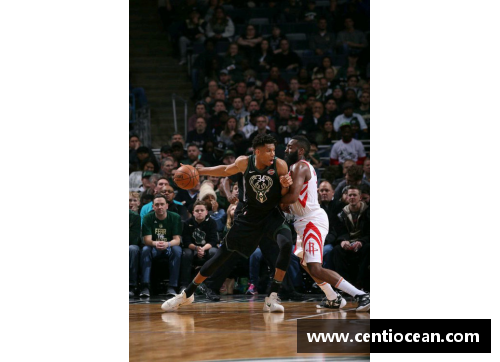NBA防守效率:数据揭示背后的战术洞见
Certainly! Here's the structured article on "NBA Defensive Efficiency: Tactical Insights Revealed by Data".
**Abstract:**
In the dynamic world of NBA basketball, defensive efficiency stands as a critical metric that goes beyond simple statistics. This article delves into the multifaceted nature of NBA defensive strategies, dissecting them through the lens of data analytics. By exploring various tactical nuances, from individual player performances to team-based defensive schemes, this discussion highlights how advanced metrics shape coaching decisions and strategic adaptations in one of the most competitive sports leagues globally.
---
彩神vll**1、Defensive Player Metrics**
Defensive player metrics in the NBA are more than just blocks and steals. They encapsulate a player's ability to alter shots, their spatial awareness on the court, and their impact beyond traditional statistics. Advanced analytics now delve into metrics like Defensive Rating (DRtg), Defensive Win Shares (DWS), and Defensive Box Plus/Minus (DBPM), offering deeper insights into individual defensive prowess.
These metrics not only quantify a player's defensive contributions but also reveal how certain players excel in specific defensive roles. For instance, a high DBPM might indicate a player's ability to significantly impact defensive outcomes when on the court, influencing opponent shooting percentages and overall team defense.
Furthermore, the synergy between traditional scouting and advanced metrics allows coaches to optimize defensive rotations and matchups. By leveraging player-tracking data and video analysis, teams can pinpoint defensive strengths and weaknesses with precision, adapting strategies in real-time to neutralize opponents' offensive threats.
**2、Team Defensive Strategies**
Team defensive strategies in the NBA extend beyond individual talents to cohesive systems designed to stifle opposing offenses. Defensive schemes vary widely, from man-to-man and zone defenses to hybrid schemes that adapt based on opponent tendencies and personnel.

Advanced statistical analysis has revolutionized how teams approach defensive game planning. Metrics such as Defensive Efficiency (DEff), Points Allowed per Possession (PPP), and Effective Field Goal Percentage Against (eFG% Against) provide benchmarks for evaluating defensive effectiveness.
Coaches and analysts use these metrics to tailor defensive strategies, emphasizing areas like transition defense, pick-and-roll coverage, and protecting the rim. By identifying trends in opponent shot selection and efficiency zones, teams optimize defensive rotations and positioning to force low-percentage shots and turnovers.
Moreover, the advent of player-tracking data has ushered in a new era of defensive analytics. Teams now utilize spatial tracking and movement metrics to assess defensive spacing, help defense effectiveness, and anticipate offensive actions, providing a comprehensive view of defensive performance beyond traditional box scores.
**3、Impact of Coaching and Adjustments**
The impact of coaching on NBA defensive efficiency cannot be overstated. Coaches play a pivotal role in devising defensive game plans, adjusting strategies based on opponent strengths, and maximizing player performance through strategic guidance and in-game adjustments.
Advanced analytics empower coaches to make informed decisions on defensive rotations and matchups. Real-time data on opponent shot charts, offensive play types, and lineup efficiencies enable coaches to implement targeted defensive adjustments, such as altering defensive coverage schemes or deploying specific personnel to counter opponent scoring threats.
Furthermore, coaching staffs utilize film study and statistical insights to prepare players for defensive scenarios, emphasizing situational awareness, communication, and disciplined execution. The synergy between coaching expertise and analytical insights fosters a dynamic approach to defensive strategy, enhancing team cohesion and defensive resilience throughout the NBA season.
Ultimately, the ability to adapt defensively is a hallmark of successful NBA teams. Coaches leverage analytics to optimize defensive efficiency, strategically adjusting tactics to mitigate opponent strengths and exploit weaknesses, thereby influencing game outcomes and championship aspirations.
**4、Future Trends and Innovations**
The future of NBA defensive efficiency lies in continued advancements in analytics and technological innovations. As data collection methods evolve and analytical tools become more sophisticated, teams will gain deeper insights into defensive performance metrics, player tendencies, and tactical efficiencies.
Emerging technologies such as AI-driven predictive analytics and machine learning algorithms hold promise in revolutionizing defensive strategy. These technologies can forecast opponent actions, simulate defensive scenarios, and optimize game planning with unprecedented accuracy, providing teams with a competitive edge in a league defined by constant innovation.
Moreover, the integration of biomechanical data and player health analytics into defensive metrics will enhance injury prevention strategies and optimize player workload management, ensuring peak defensive performance over the course of a grueling NBA season.
**Conclusion:**
In conclusion, NBA defensive efficiency transcends traditional statistics, driven by advanced analytics that illuminate tactical insights and strategic adaptations. From individual player metrics to team-based defensive strategies, the convergence of data analytics and coaching expertise shapes defensive success in the NBA. As the league embraces technological innovations and analytical advancements, the future promises a dynamic evolution in defensive strategies, empowering teams to excel in one of the most competitive sports landscapes globally.
By leveraging data-driven insights and embracing innovation, NBA teams will continue to redefine defensive excellence, setting new benchmarks for performance and strategic sophistication in the pursuit of championship glory.